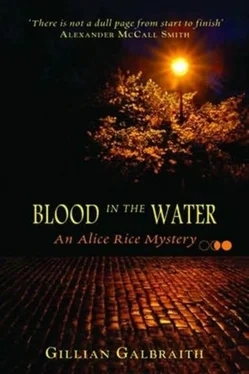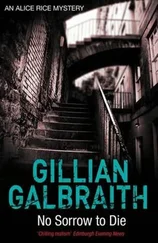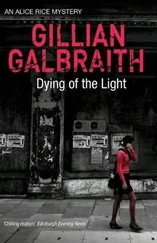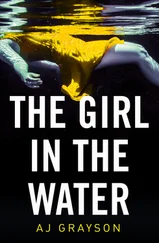Gillian Galbraith - Blood In The Water
Здесь есть возможность читать онлайн «Gillian Galbraith - Blood In The Water» весь текст электронной книги совершенно бесплатно (целиком полную версию без сокращений). В некоторых случаях можно слушать аудио, скачать через торрент в формате fb2 и присутствует краткое содержание. Жанр: Детектив, на английском языке. Описание произведения, (предисловие) а так же отзывы посетителей доступны на портале библиотеки ЛибКат.
- Название:Blood In The Water
- Автор:
- Жанр:
- Год:неизвестен
- ISBN:нет данных
- Рейтинг книги:5 / 5. Голосов: 1
-
Избранное:Добавить в избранное
- Отзывы:
-
Ваша оценка:
- 100
- 1
- 2
- 3
- 4
- 5
Blood In The Water: краткое содержание, описание и аннотация
Предлагаем к чтению аннотацию, описание, краткое содержание или предисловие (зависит от того, что написал сам автор книги «Blood In The Water»). Если вы не нашли необходимую информацию о книге — напишите в комментариях, мы постараемся отыскать её.
Blood In The Water — читать онлайн бесплатно полную книгу (весь текст) целиком
Ниже представлен текст книги, разбитый по страницам. Система сохранения места последней прочитанной страницы, позволяет с удобством читать онлайн бесплатно книгу «Blood In The Water», без необходимости каждый раз заново искать на чём Вы остановились. Поставьте закладку, и сможете в любой момент перейти на страницу, на которой закончили чтение.
Интервал:
Закладка:
‘It’s ma last yin, doctor, ye ken hoo nervous I aye get in hospitals. Nae mair fi’ noo oan.’
Dr Clarke nodded politely again, inwardly acknowledging the futility of any further discussion.

McDonald House, the building containing the Faculty of Advocates’ consulting rooms, was recessed off the High Street down a small, ill-lit wynd. Its large, well-furnished waiting room was warm, plentifully stocked with glossy magazines and reminiscent of a slightly stuffy gentleman’s club forced, unwillingly, into the twenty-first century. As Dr Clarke lowered herself thankfully into a red leather armchair, CD World in hand, Kate McLeod, her solicitor from the Scottish Health Service Central Legal Office, spotted her and came to sit next to her. The young woman’s face and clothes were streaked with rain, and she hauled behind her a large shopping trolley, weighed down with blue cardboard files. Seeing the doctor’s quizzical gaze on it, she volunteered that all her colleagues were supplied with the trolleys in order, they assumed, for their employers to avoid any liability for injuries caused by the carrying of the reams of paper needed for most consultations. Extracting one of the files from the trolley, she opened it and handed the doctor a two-page document, explaining that it had just been e-mailed to her by their opponents, and was a report from the pursuer’s expert witness, Dr Manning.
While Elizabeth Clarke was reading the report, two men dressed in black jackets and waistcoats, with sponge-bag trousers and shiny shoes, approached her armchair. Looking up, she recognised Robert Philip QC and his Junior, Simon Stewart. Both were known to her from previous court battles. The Silk was a fat man; his starched collar disappeared into the folds of his neck and two pendulous dewlaps overshadowed his tie. Yards of white shirt were visible in the gap between his waistcoat and his trousers, and a gold fob watch chain strained across his belly, emphasising its prosperous rotundity. His Junior was also corpulent, but looked less likely to melt on a hot day, some signs of muscle and bone still apparent.
After cursory greetings they went downstairs, the Silk leading the way to room fourteen, took their seats and laid out their papers on the large mahogany table that dominated the chamber. Once seated, Dr Clarke was irritated to find that she felt nervous. She was conscious that her heart was beating, thumping against her chest, and that the place had suddenly become uncomfortably warm and airless. It was so stupid, this fear. She had no reason to feel apprehensive, no cause for any anxiety. All that they wanted was her expert opinion, an opinion she was eminently qualified to provide. Breathing slowly in and out, she reminded herself, it’s not me this time, it’s not me that they’re after.
Robert Philip quickly sketched out the case, reading when necessary from the Closed Record. It was a medical negligence action. A woman had gone into hospital for a sterilisation operation, involving the blocking of her fallopian tubes. The surgeon treating her had performed, before the sterilisation operation, a dilatation and curettage procedure. His patient had, allegedly, not consented to the additional procedure. Subsequently, she had developed septicaemia. She attributed the development of the septicaemia to the unauthorised ‘D &C’, and now wanted compensation from the NHS Trust responsible for the hospital.
Listening to the crisp, unemotional summary of events, Dr Clarke wondered whether the lawyers involved had any idea of the degree of concern that a suit, such as that being so coolly discussed, engendered in the doctors under attack. Whether they liked it or not, they would have to live with the allegation of negligence day after day, probably for up to six years or so, until they were found guilty or innocent of the charge against them. To exonerate themselves they would have to endure days in a witness box being harangued by an aggressive young Turk intent upon making his reputation by destroying theirs. Any hidden insecurities they felt in carrying out their difficult jobs were exacerbated by the litigation and would eat away at them. Even if the case against them was finally dismissed, their professional confidence was dented, the shadow of a stain on their record.
The afternoon passed slowly, with Dr Clarke explaining in detail precisely what was involved, in surgical terms, with a D &C procedure and a sterilisation operation using fallope rings. When asked, she drew, on paper thrust hurriedly before her, diagrams of the relevant anatomy, the uterus, cervix, fallopian tubes and ovaries, and Robert Philip quickly scrawled the names of the organs, or structures, onto her drawings. As she spoke, Junior Counsel took copious notes in his old fashioned blue jotter and, she observed with amusement, sketched caricatures of his Senior whenever she became remotely repetitious. Before long the atmosphere in the windowless room became heavy with the odour of warm work-clothing, and she was much relieved when Philip announced, at about six pm, that their meeting would have to end, as he had to pick up his child from kindergarten. Not for the first time she considered the fate of the offspring of the professional classes, in a nursery or some other care practically from birth onwards, their needs always secondary to their parents’ ambition. Better not have a child at all, for the child’s sake; there was no longer any question in her mind about that. It was a modern myth, this ‘having it all’ for women, about as achievable as a cache of fairy gold or a clutch of phoenix’s eggs. Choices had to be made, and she had made hers.
The air outside was cold, a sharp refreshing cold after the foetid warmth of the consulting room. Deliberately exhaling the used air from her lungs, she breathed in deeply and, pulling up the collar of her dark blue coat, walked up the High Street towards the Castle, turning right to go down the Mound towards Princes Street. She felt a surge of childish delight on seeing the mass of white lights on the huge Christmas tree opposite the twin gothic towers of Playfair’s New College, the brilliant strands swinging wildly in the wind that was beginning to rise. In ten minutes the Dean Bridge and her home at 1 Bankes Crescent came into view, partially obscured by the bare winter trees that flanked the north side of the Dean Gardens. She removed her gloves to unlock the impressive black front door that served the three flats and picked up her mail. Nothing more than the usual advertising circulars and a couple of dull looking brown envelopes. No Christmas cards yet.
Elizabeth Clarke had never subscribed to the view that drinking alone amounted to the taking of the first, few, faltering steps along the road to perdition. A maxim coined by some bibulous married man, never short of domestic company. Anyway, if it did, she was half-way to hell already and quite determined to reach journey’s end. The long gin and tonic she poured herself would simply allow her taut mind to relax, enabling her to enjoy the Elgar more fully and dull the shrill, ever-present voice in her head which told her that she should be doing something, achieving something. She took the new disc from its box, put it into her CD player and switched the sound to the speakers in her bathroom.
The warm water enveloped her, caressed her aching limbs. She stretched out her arm lazily for her mobile phone, thinking that once she had spoken to her mother she would be free of all responsibilities, at least until after supper, when she would have to compile the medical report commissioned by those aggressive solicitors in Glasgow.
‘Hello Ma, it’s me. How’s your back been?’
Читать дальшеИнтервал:
Закладка:
Похожие книги на «Blood In The Water»
Представляем Вашему вниманию похожие книги на «Blood In The Water» списком для выбора. Мы отобрали схожую по названию и смыслу литературу в надежде предоставить читателям больше вариантов отыскать новые, интересные, ещё непрочитанные произведения.
Обсуждение, отзывы о книге «Blood In The Water» и просто собственные мнения читателей. Оставьте ваши комментарии, напишите, что Вы думаете о произведении, его смысле или главных героях. Укажите что конкретно понравилось, а что нет, и почему Вы так считаете.












